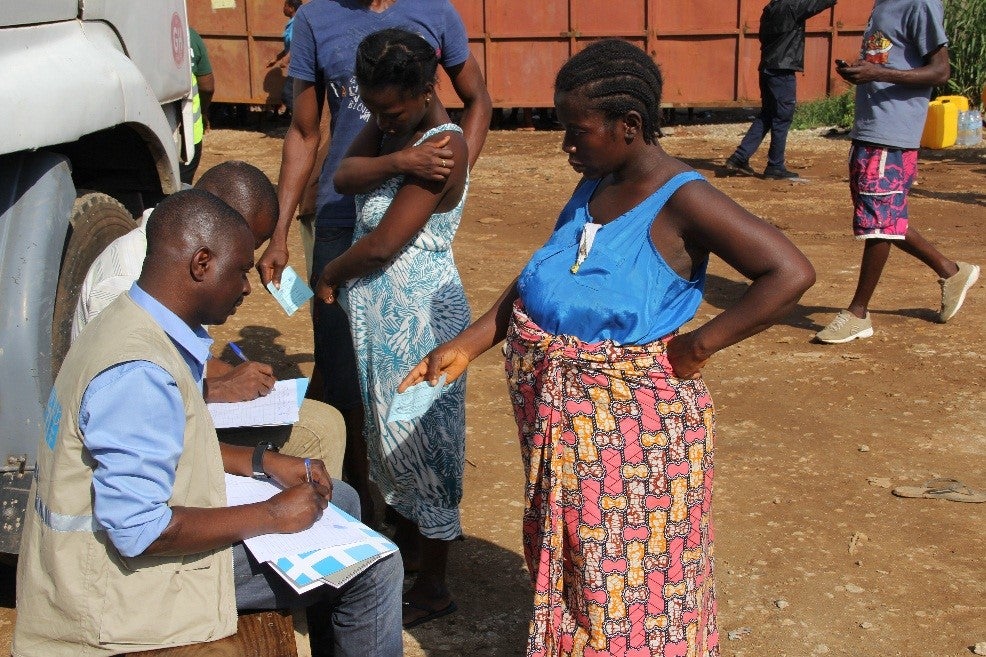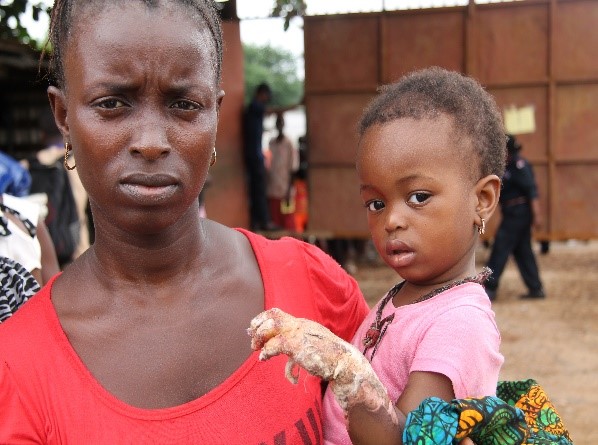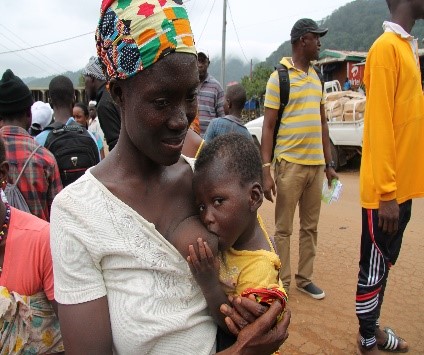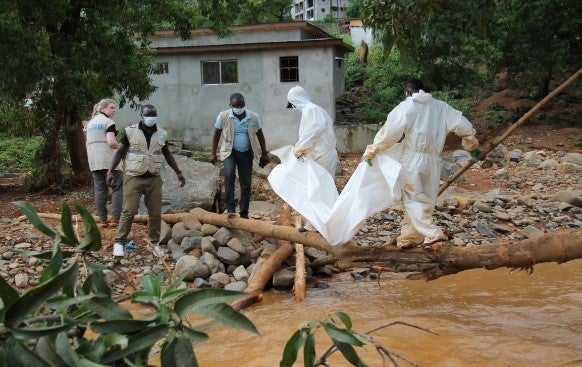In Sierra Leone UN Women is building resilience placing women at the center of humanitarian response
Date:
Sierra Leone and its people are known for resilience. Eleven years of violent civil war that claimed more than 50,000 lives and displaced one million people was followed by the Ebola Virus Disease that claimed another 4000 lives by the end of the epidemic in November 2016. No sooner had the country started to emerge from the Ebola crisis, than torrential rains which led to a deadly mudslide on 14 August, 2017 hit the country. The recent crisis has claimed the lives of more than 400 people. Others had been found, but many victims are still trapped under heaps of mud in the areas/towns/districts of Regent, Kamayamah, Dworzak, Culvert, kissy brook, Mountain cut and Kaningo.


In addition to being part of the Rapid Assessment Team, UN Women has distributed 750 “dignity kits” to women and girls within the first week, marking the first phase of humanitarian response at Water Street, Race Course Road and ‘Culvert’ —areas affected by the mudslide and flood. The dignity kits include sanitary pads for women and girls, toothbrush/paste, underclothing’s, soap, clothing, bath towel and other basic health and hygiene necessities.
Since women and girls are often disproportionately and uniquely impacted by crises, UN Women is leveraging on its partnerships to ensure women’s leadership in humanitarian response in Sierra Leone and urgent gender-based needs of the affected population are met and delivered accordingly. While men are traditionally accustomed to receiving aid, the distribution of dignity kits focuses on women as recipients.


‘‘It was 3 a.m. when my 14-year-old daughter Kalaytu Thoronka woke me up, showing me the water that was coming into our house. Before we could do anything, water was spouting from everywhere and then the left side of my house collapsed… I thank God that my four children and I survived the flood, but I have lost my business capital worth USD 400 and all my belongings. I have nowhere to start but with this dignity kit,” she shared.


Kamara is now temporarily staying with a neighbour. “I survive with food from UN agencies and NGO’s and I am very grateful to UN Women for the Dignity Kit, which has very useful items for my personal use. After the landslide, we gave our names as survivors to the Ministry of Social Welfare Gender and Children Affairs and this is how we were given support.”
